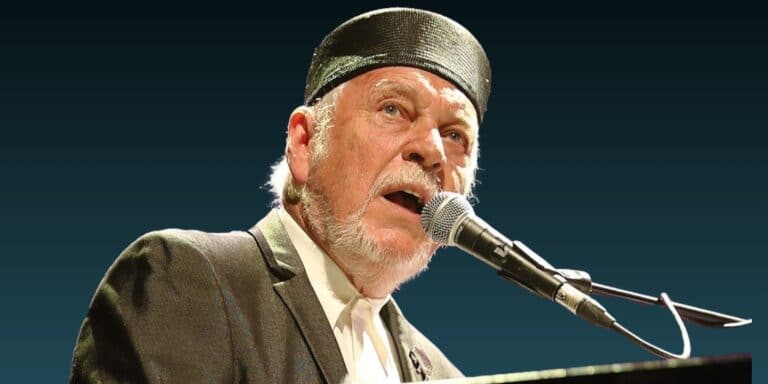Robert Ross, a gung-ho entrepreneur who juggled global deals in things like fertilizer, pantyhose, steel and antisnoring medicine, then made his big mark by starting for-profit medical, veterinary and nursing schools in the Caribbean, died on Saturday at his home in Manhattan. He was 92.
The cause was cancer of the urethra, his son Warren said.
Mr. Ross played the commercial game with larger-than-life panache, like delivering more newspapers than anybody else in Detroit as a teenager, and selling $5 Mickey Mouse watches to Russian soldiers for more than $100 each at the end of World War II. If someone wanted fax machines, he might offer them wheat as payment. Steel? How about thousands of pairs of jeans?
Time magazine in 1972 called Mr. Ross one of the new Marco Polos for his fervid worldwide trading. He was actually just getting started.
His biggest moment came in 1976, when a staff member’s son who had been studying medicine in the Dominican Republic was rejected by the American hospitals to which he applied for the next phase of his education, clinical training. Mr. Ross started a business helping students from foreign medical schools get accepted at hospitals in the United States.
That led to his starting a medical school for would-be physicians who could not get into American medical schools. It was the first American medical school in a foreign country. Until then, Americans studying medicine abroad usually had to know a foreign language. Ross University School of Medicine started in Dominica in 1978, financed by Mr. Ross’s investment of $15 million to $20 million. There were 11 students, and classes were held in a motel.
He offered a program that was more accelerated and less expensive than those offered by most medical schools. Initially it was castigated by the American Medical Association as substandard, but it qualified for federal student loans. Applications poured in. Ever the deal maker, Mr. Ross offered to let students barter goods for tuition. “A few tons of steel could make a person a doctor,” he said.
Graduates had to pass the same tests as graduates of American schools, and many accepted hard-to-fill positions in primary care, often in run-down urban neighborhoods. “They are a godsend,” a Brooklyn hospital administrator told Forbes in 1983.
It worked well for Mr. Ross, too. In 2000, he sold the medical school, along with a veterinary school he started on St. Kitts in 1980, for about $135 million.
Robert Rosen, who later changed his name, was born in Detroit on Dec. 26, 1918. By age 15 he was delivering 200 papers in the morning and another 200 at night. His $100 weekly income was more than most adults made.
He was drafted into the Army and experienced battle in Europe. He bought 20 Mickey Mouse watches from a Frenchman with the promise — kept — that he would send him a check for $100 the next day. He sold them for more than $100 each (in rubles) to Russian soldiers he met at the Elbe River.
After returning to Detroit, he became sole distributor of seven-inch television sets in anticipation of TV stations going on the air there. He persuaded bars to buy them as a cheap way to prepare for sports on TV. A tense moment came when Ralph Capone, Al’s nephew, told him to stop, because TV would hurt his jukebox business. Mr. Ross made Mr. Capone a partner.
Mr. Ross moved to New York in 1948 and began supplying electron tubes to manufacturers like RCA, General Electric and Sylvania, finding many of them in Army surplus stores. He also opened his own transistor factory.
He expanded into Europe, where he dealt in all kinds of things, including tens of thousands of Romanian men’s suits. He made friends with powerful men like Clark Clifford, later a defense secretary, and William J. Casey, later a director of the Central Intelligence Agency, who alternated between Wall Street and top Washington jobs. Mr. Ross was soon selling China 50,000 tons of fertilizer and doing grain deals with the Soviet Union, where he said he was known as “the white-haired man with a big cigar.”
He tried to follow up on his medical school success with a for-profit medical school in Casper, Wyo. But opposition to what would have been the first for-profit medical school in the United States, from the Wyoming Medical Society and others, doomed the idea in 2000. In 2005, he opened a nursing school on St. Kitts. Three years later, he started another medical school, also in St. Kitts. The first 15 M.D.’s will be awarded this summer.
In addition to his son Warren, Mr. Ross is survived by his wife of 40 years, Anne; his daughters Nancy Ross and Carole Walker; another son, Bryan; his stepdaughters Marlene Hummel and Janis Adler; 13 grandchildren; and six great-grandchildren.
Mr. Ross was briefly involved in the pantyhose business after learning that his wife bought new ones every week. He studied existing no-run nylons and decided they were too thick. So he had a sheerer version tested and sold it in drugstores under the brand names Chez La Femme and Silky Legs. A longer-lasting business has been Ysnore, an herbal antisnoring concoction that Mr. Ross found in China in the 1970s. It is available over the counter as both drops and a spray.






